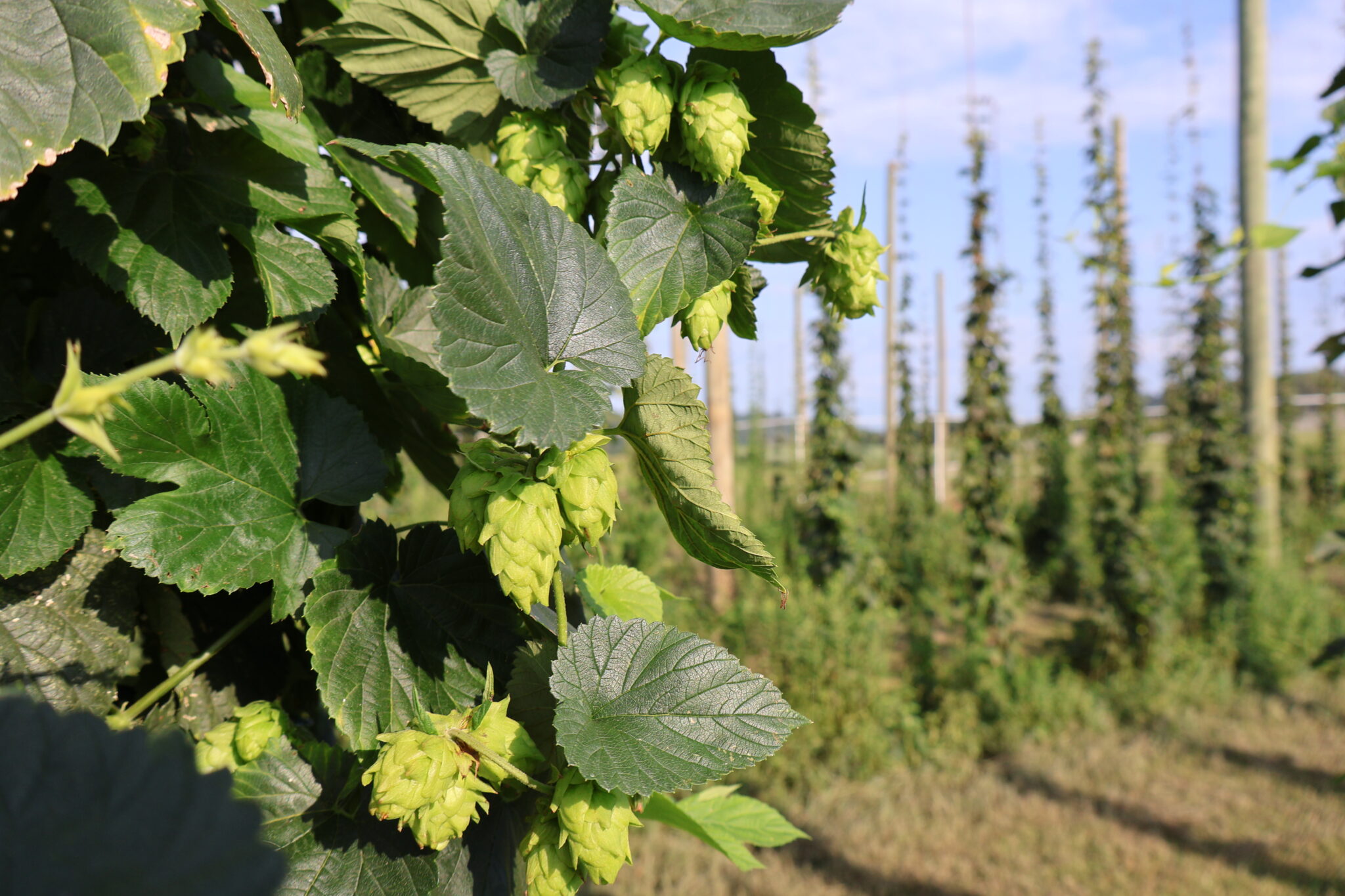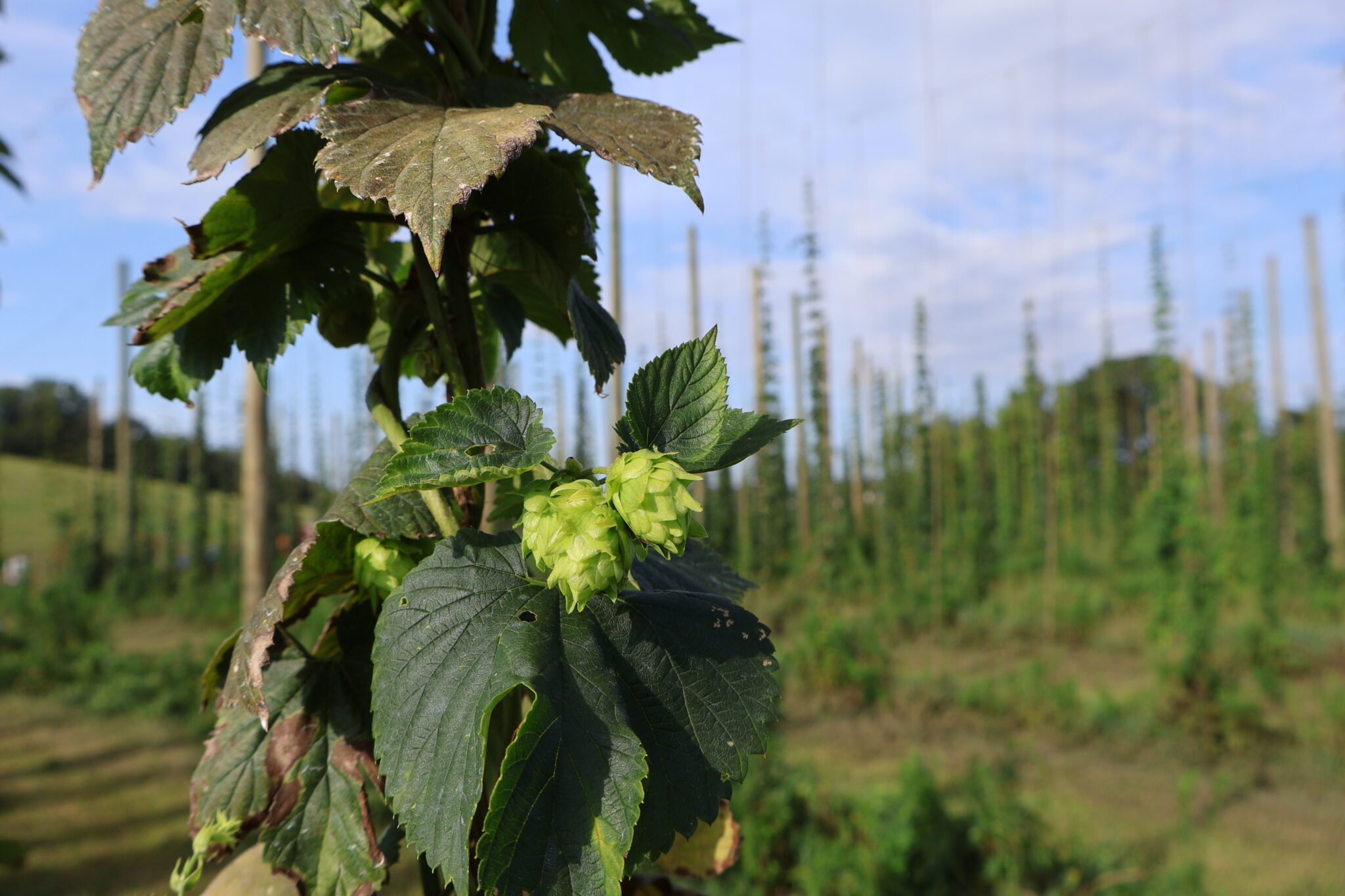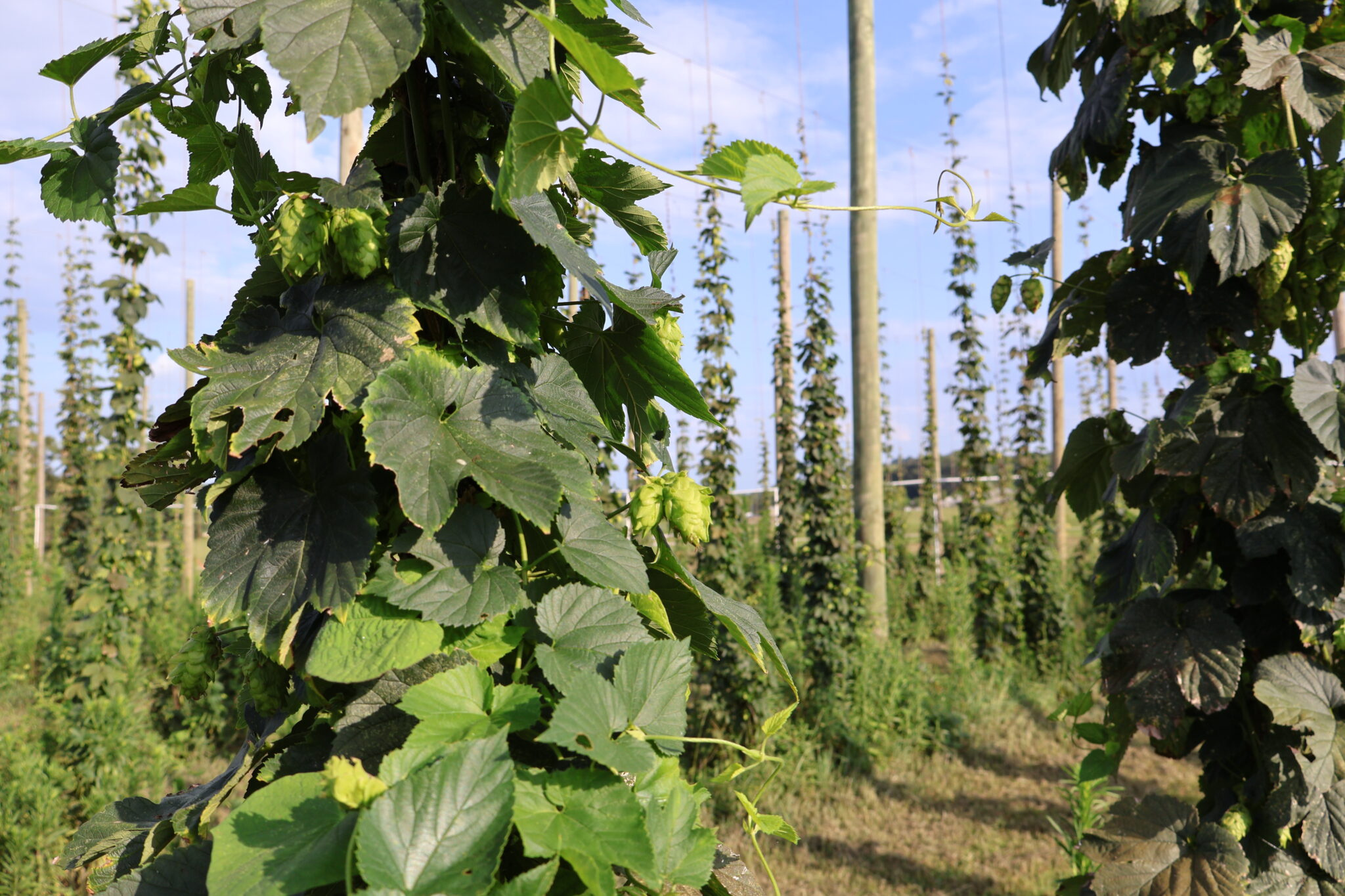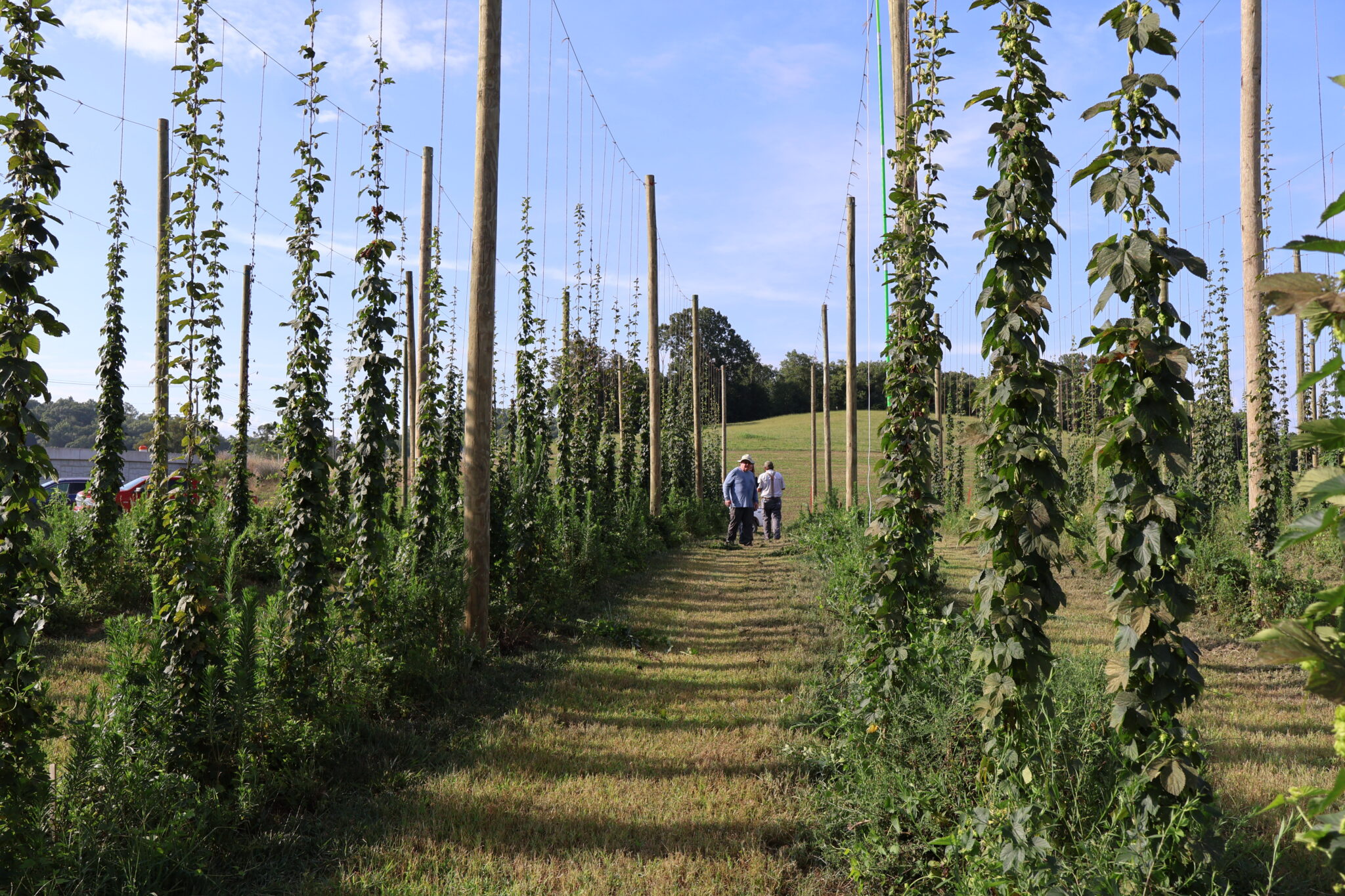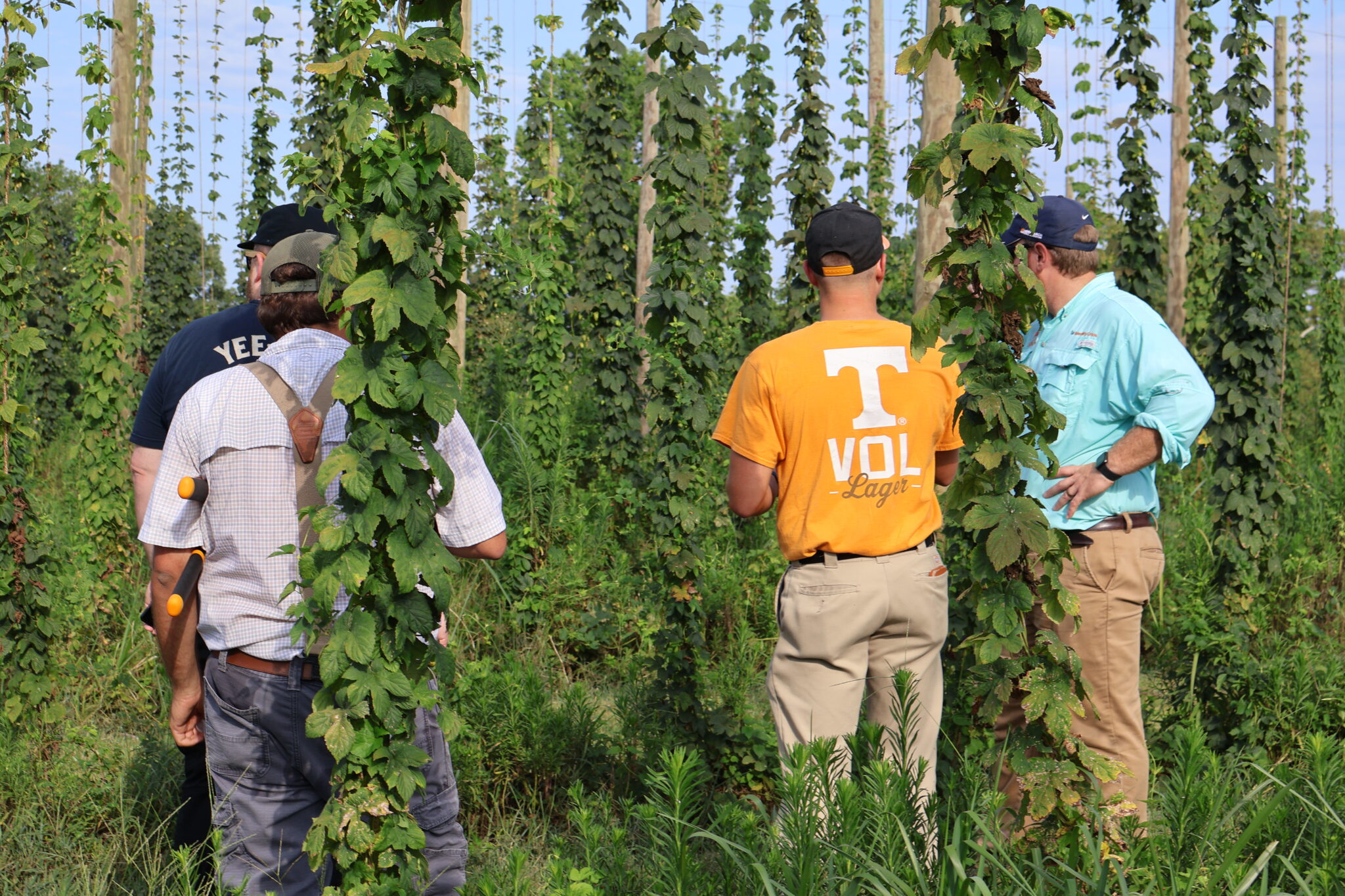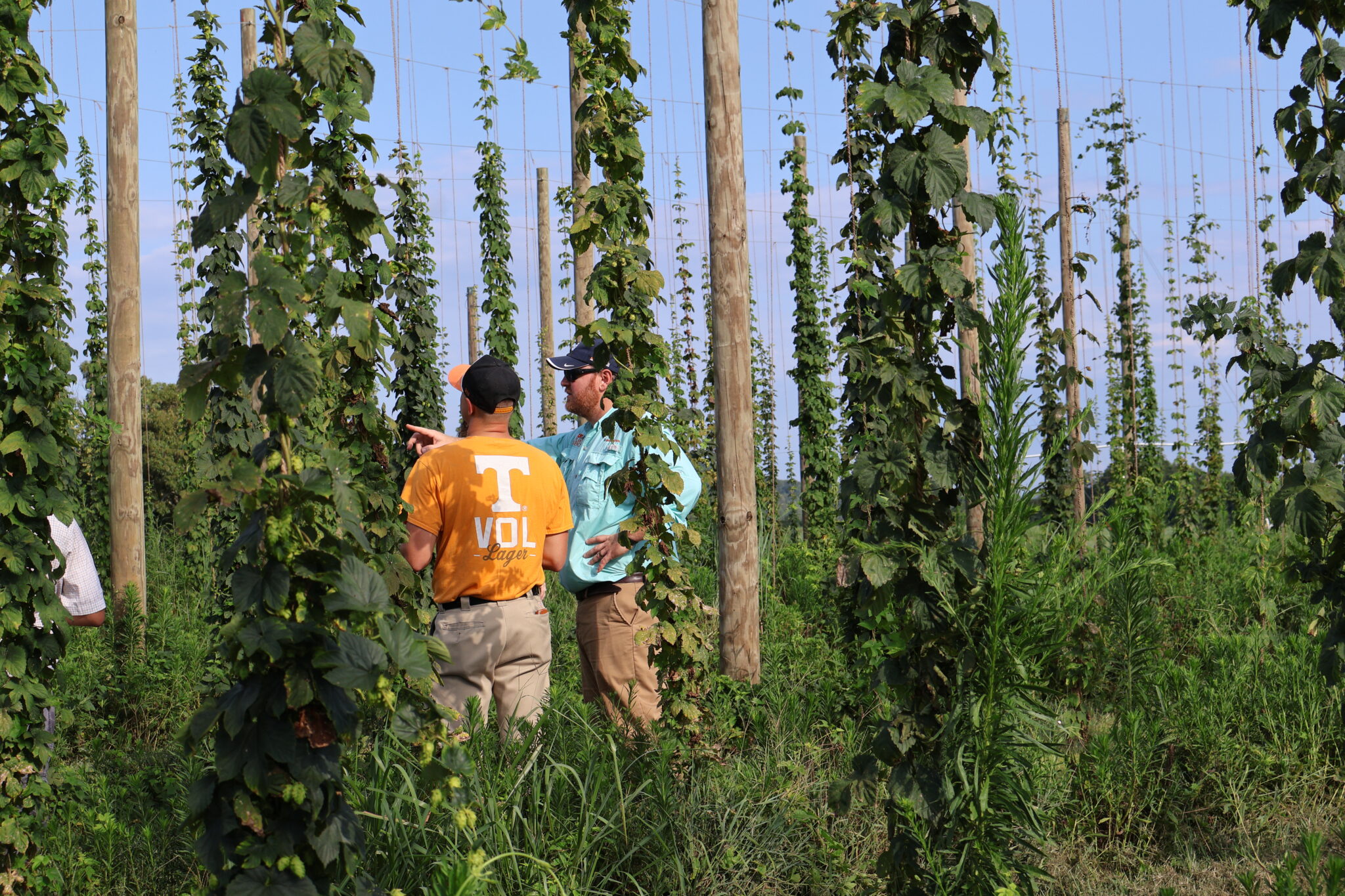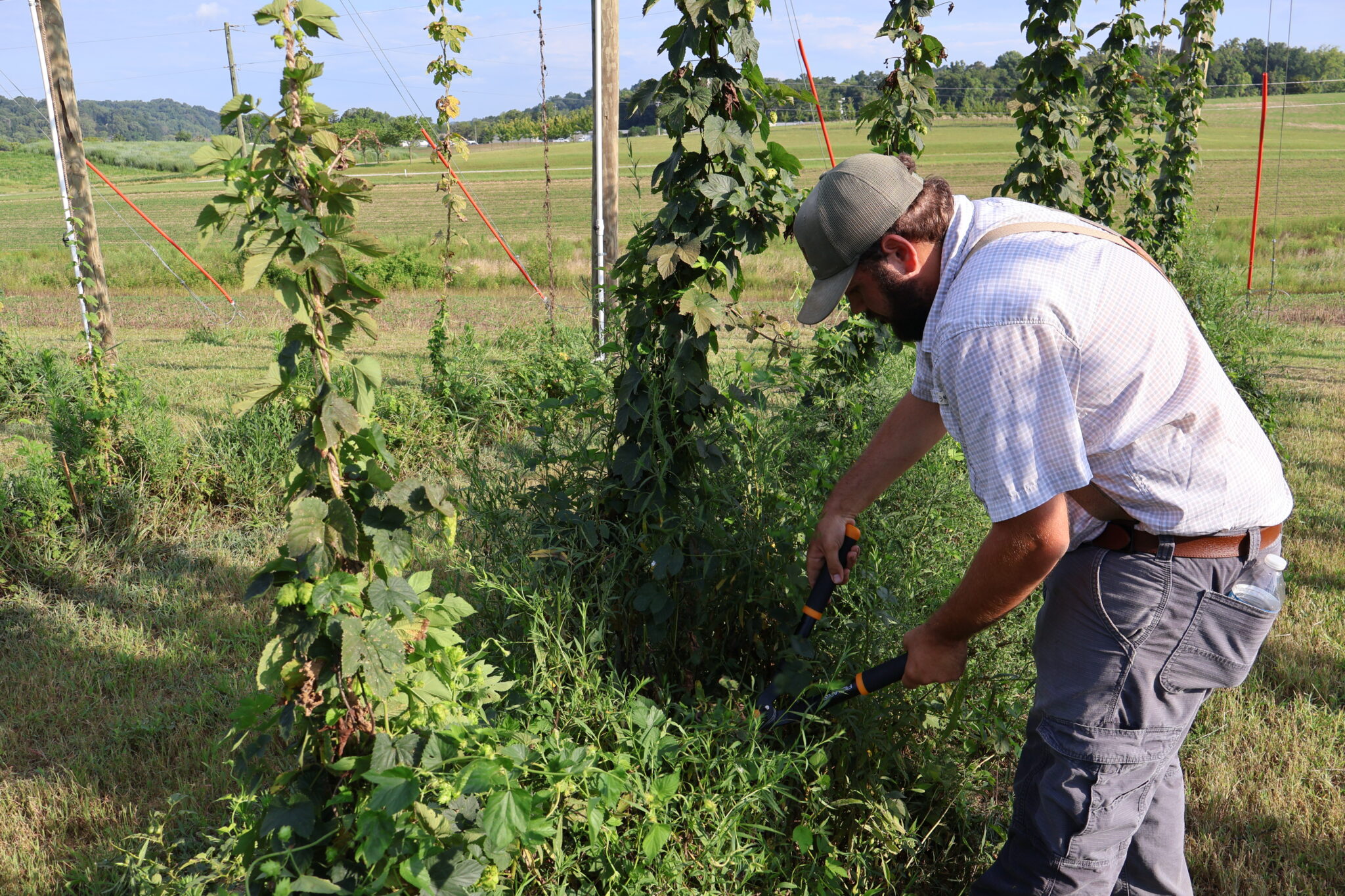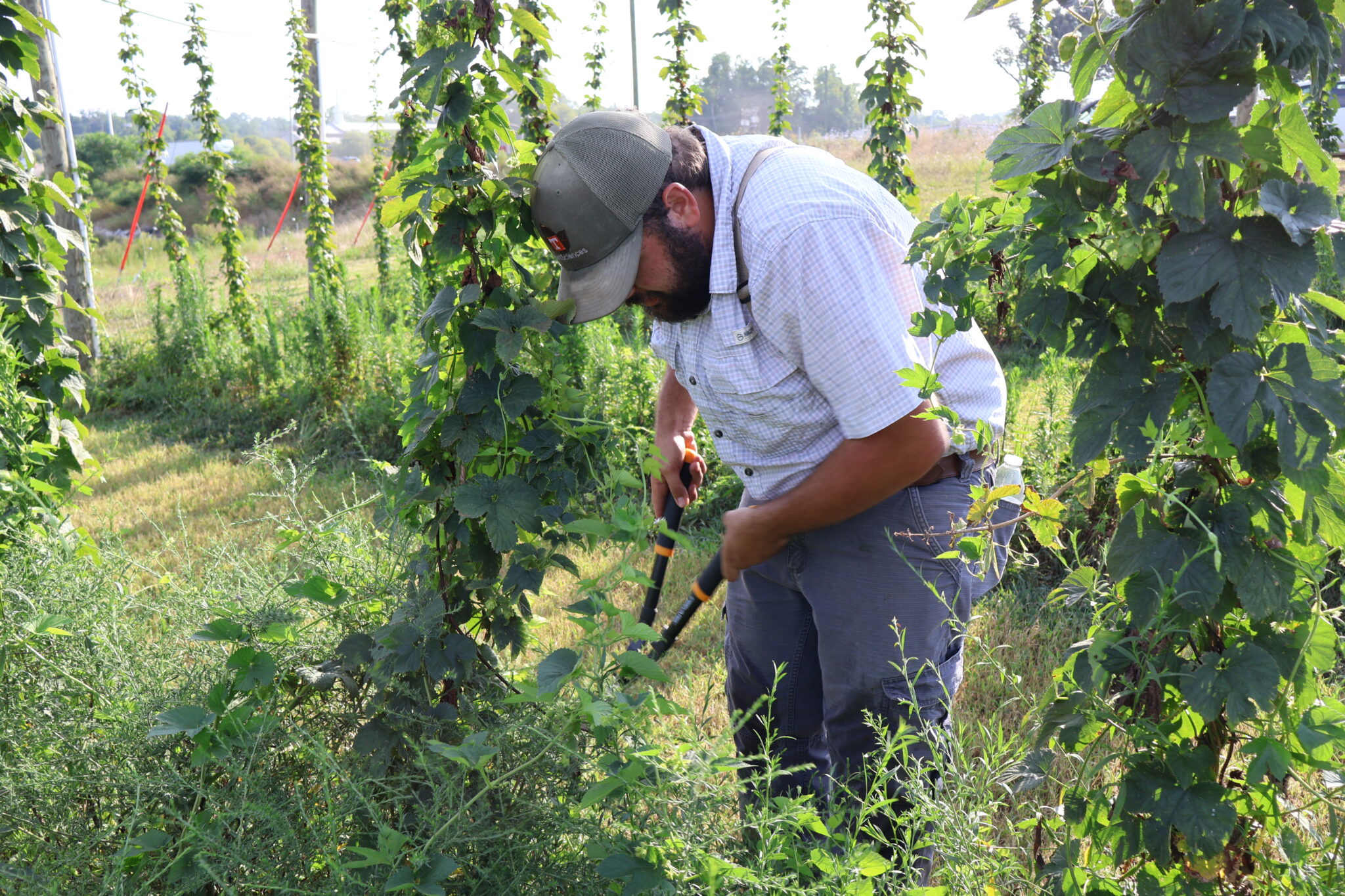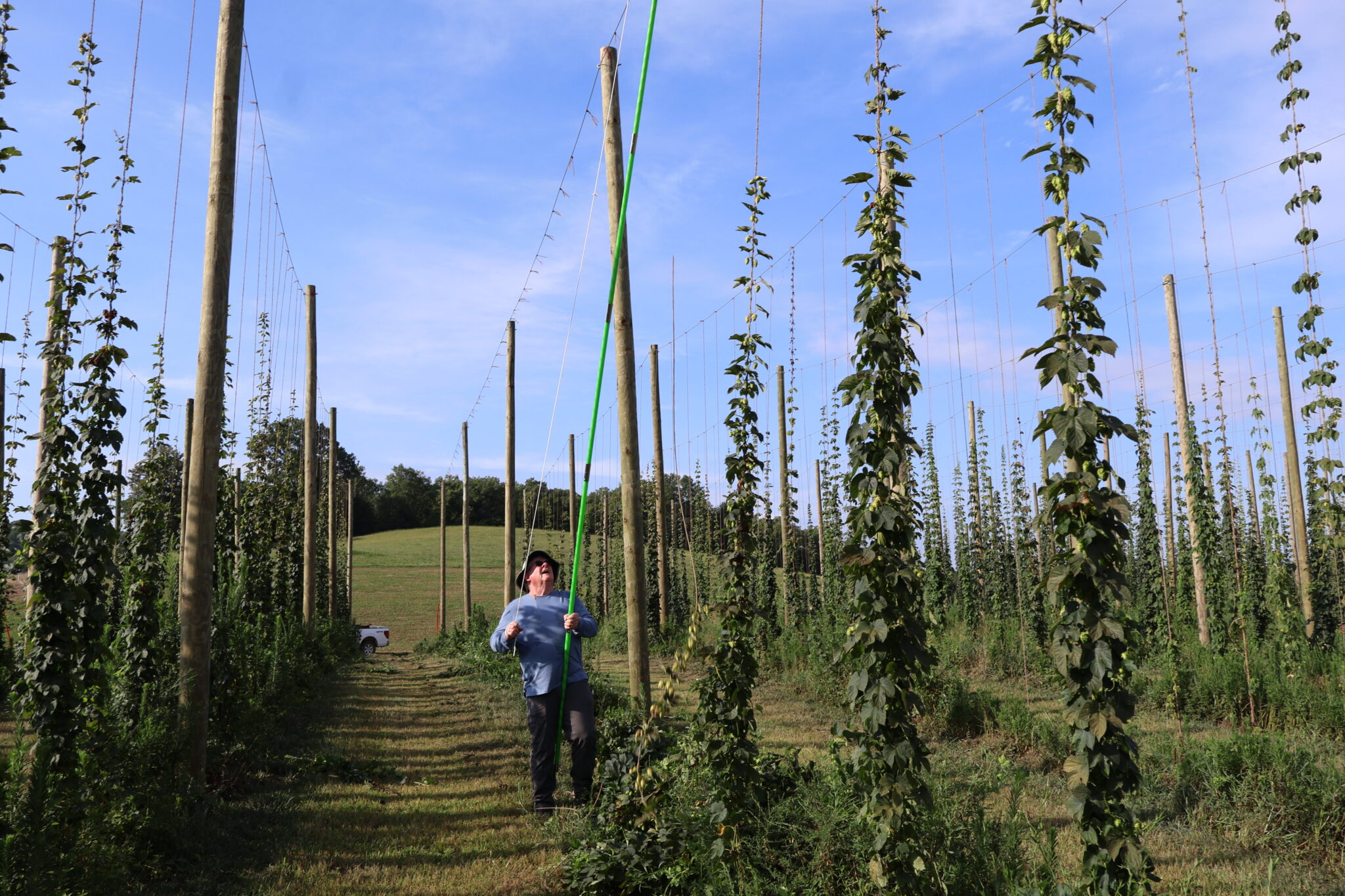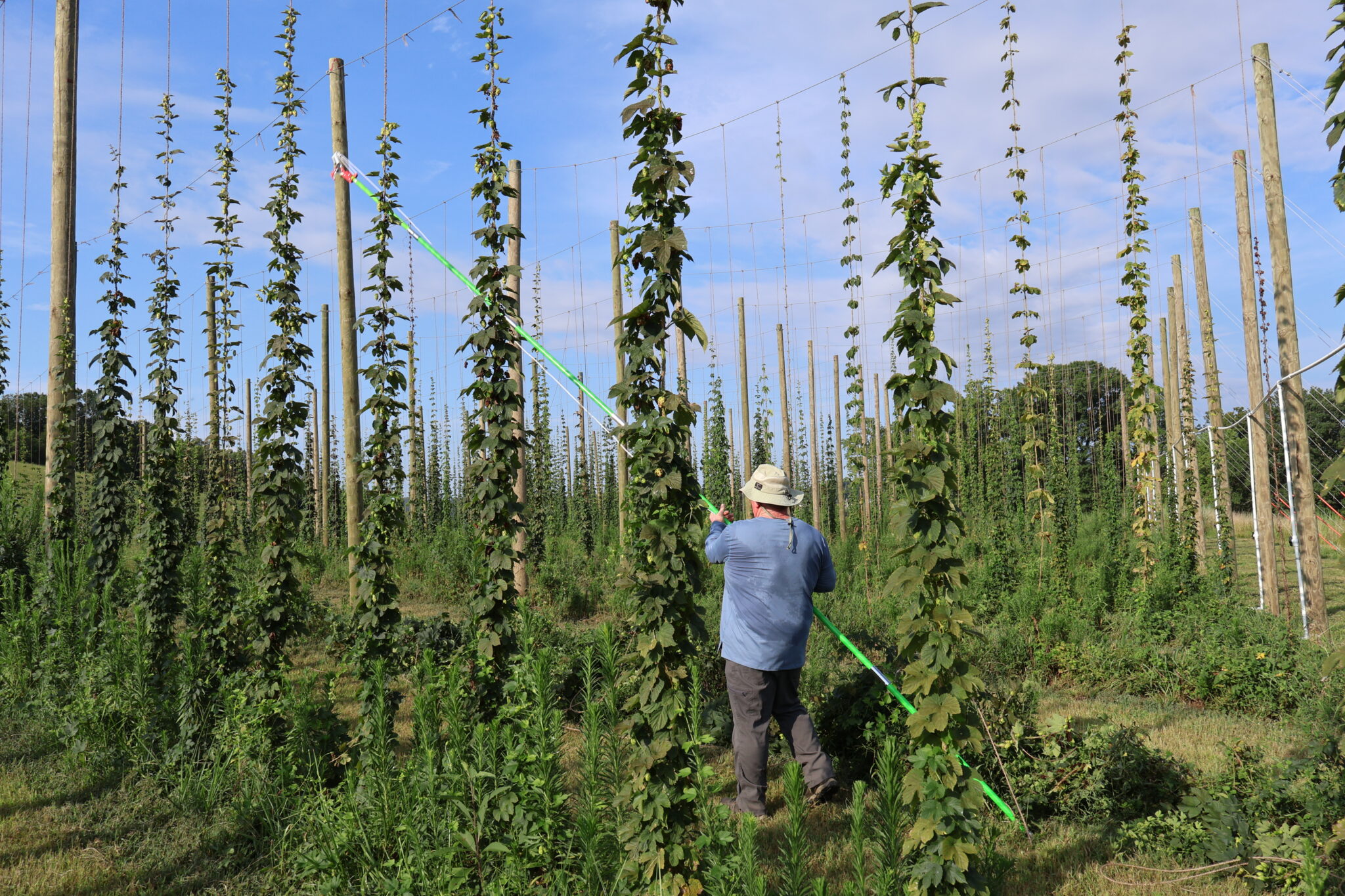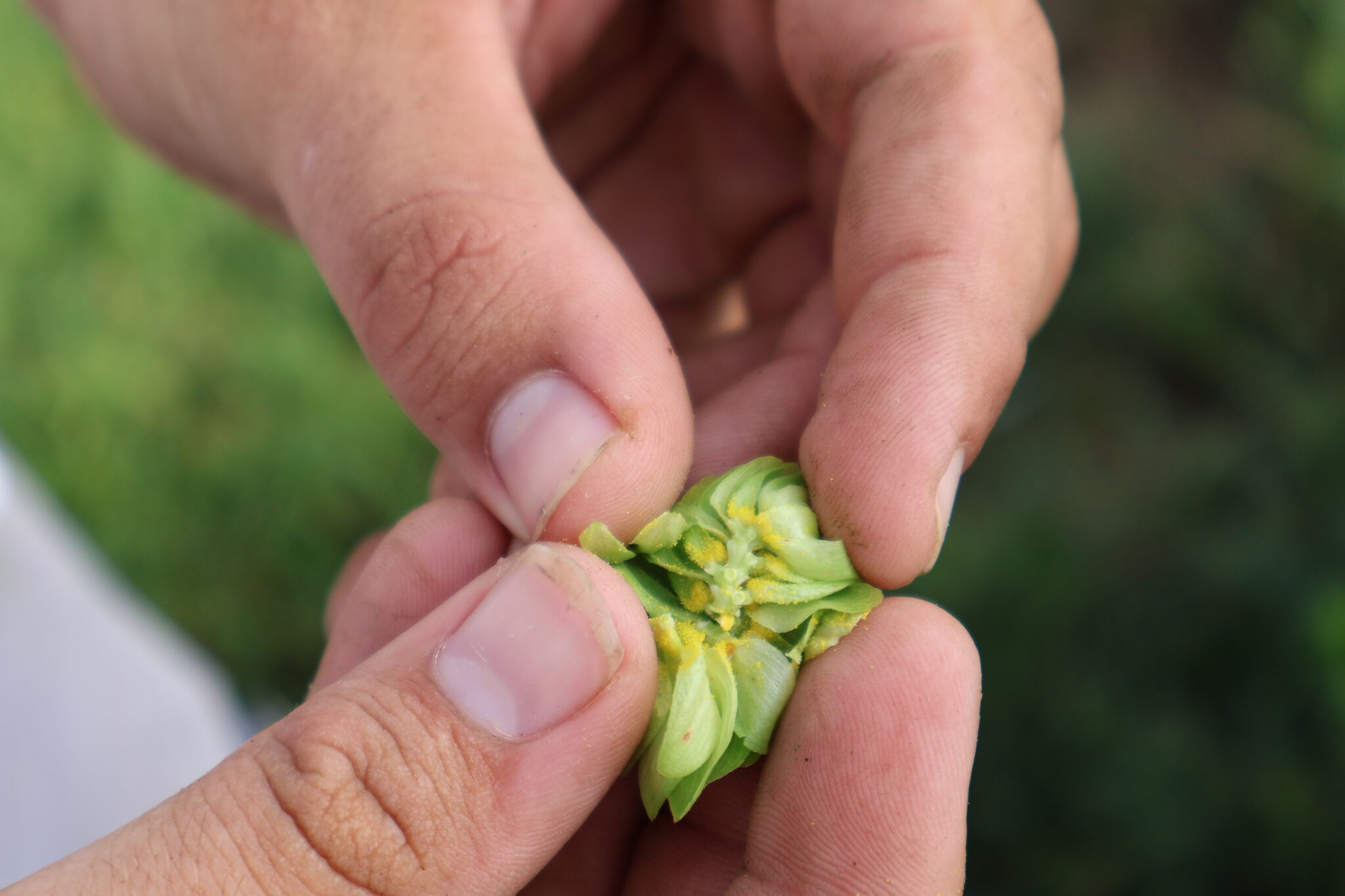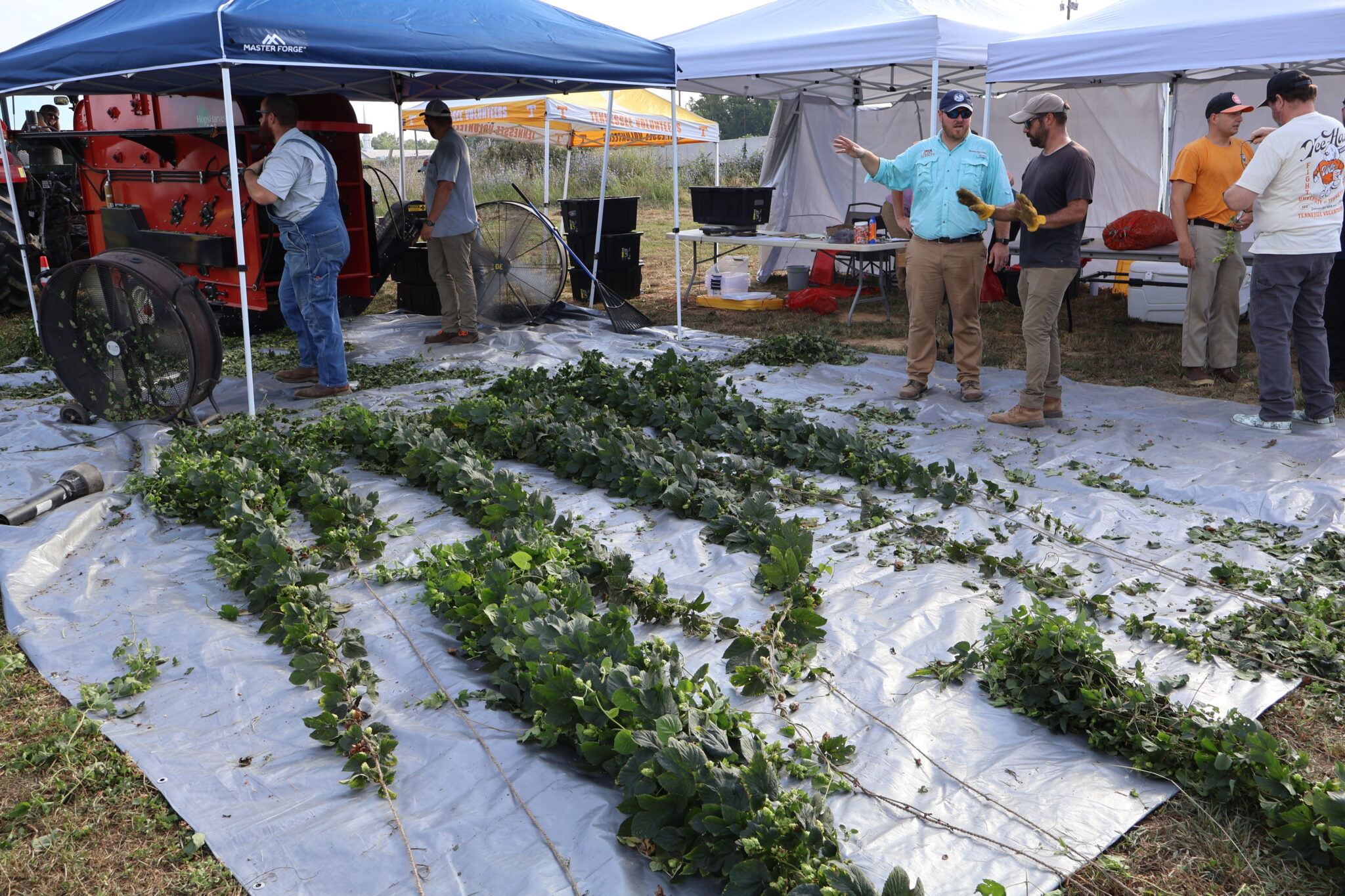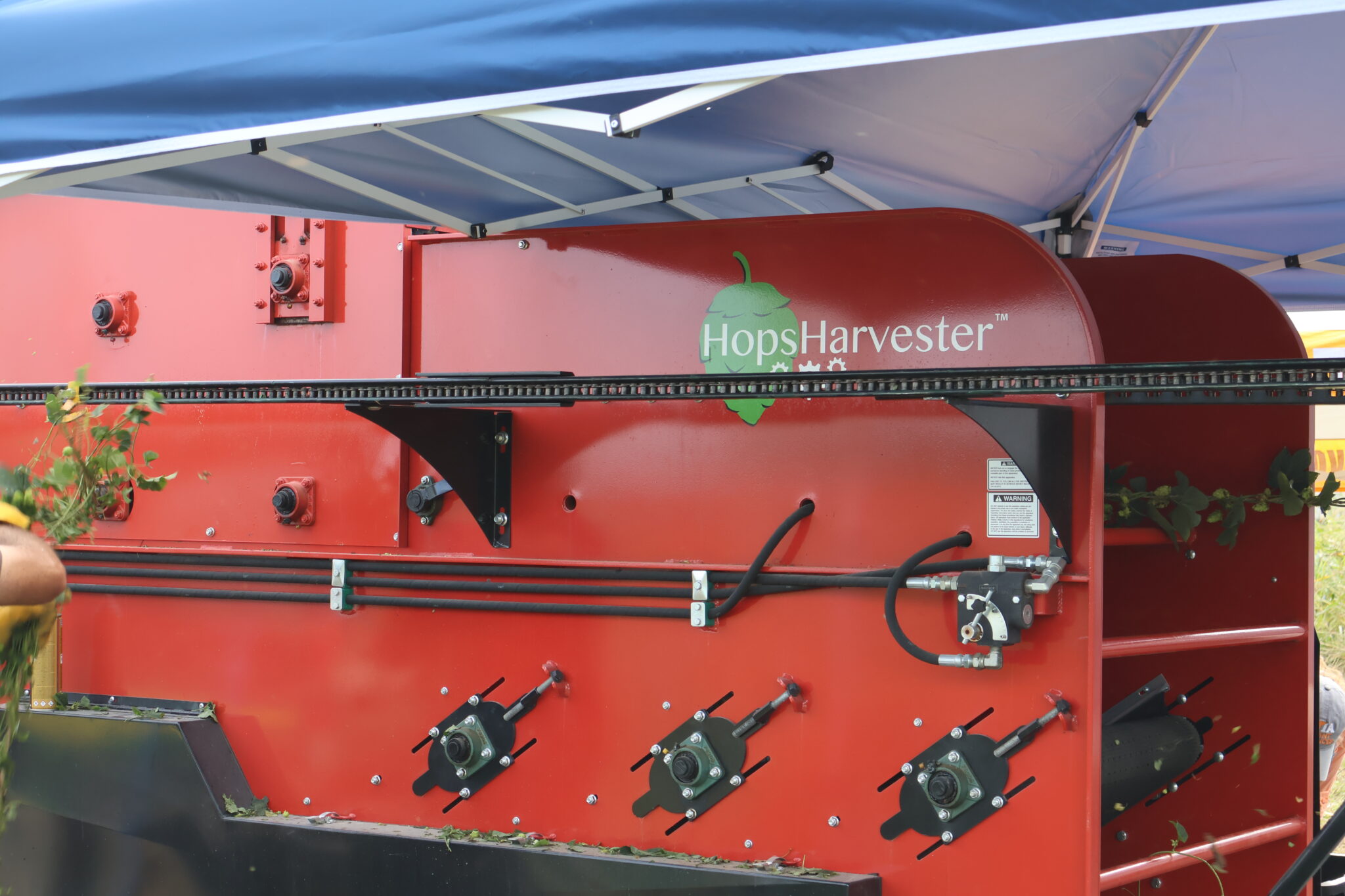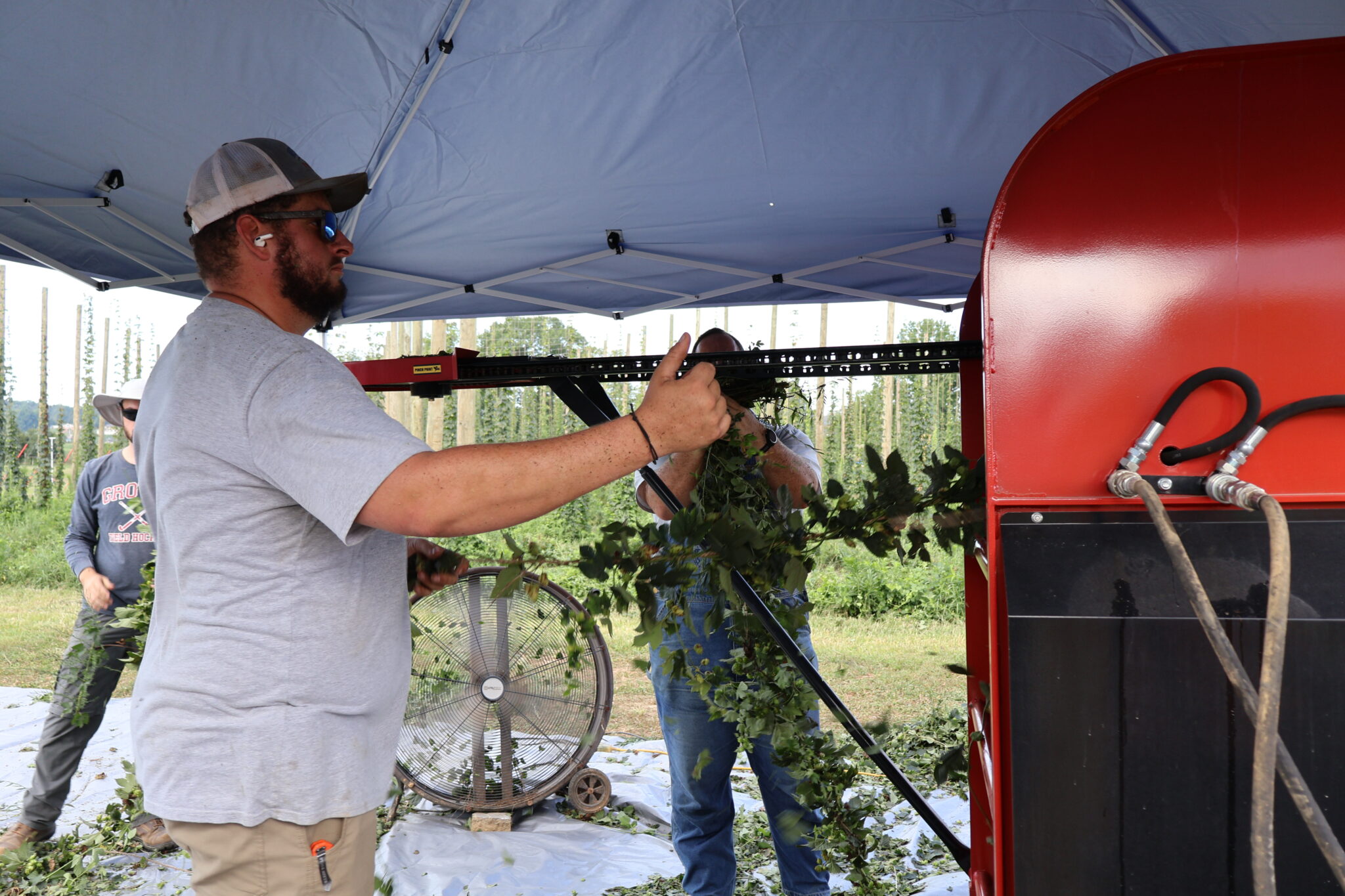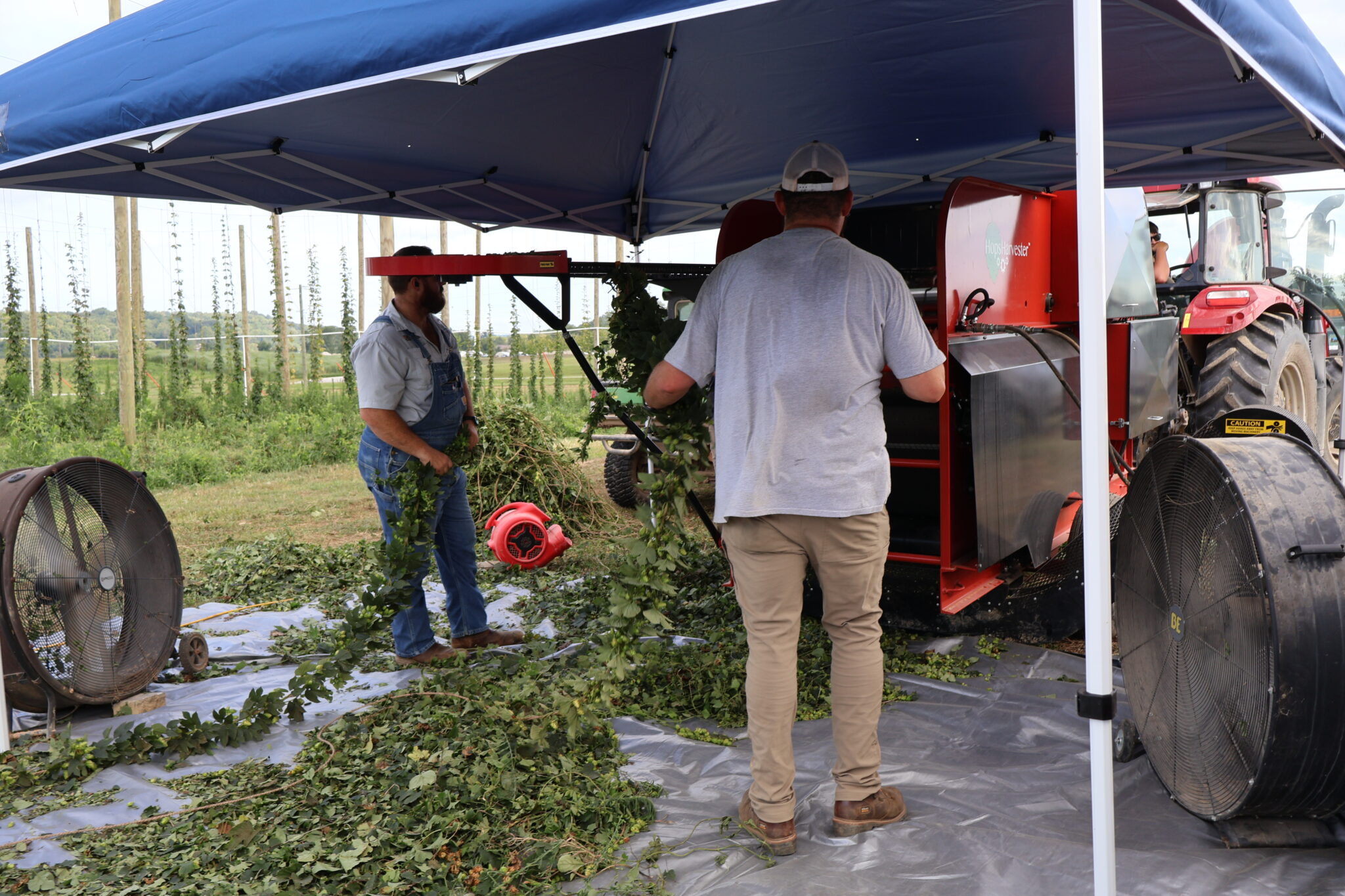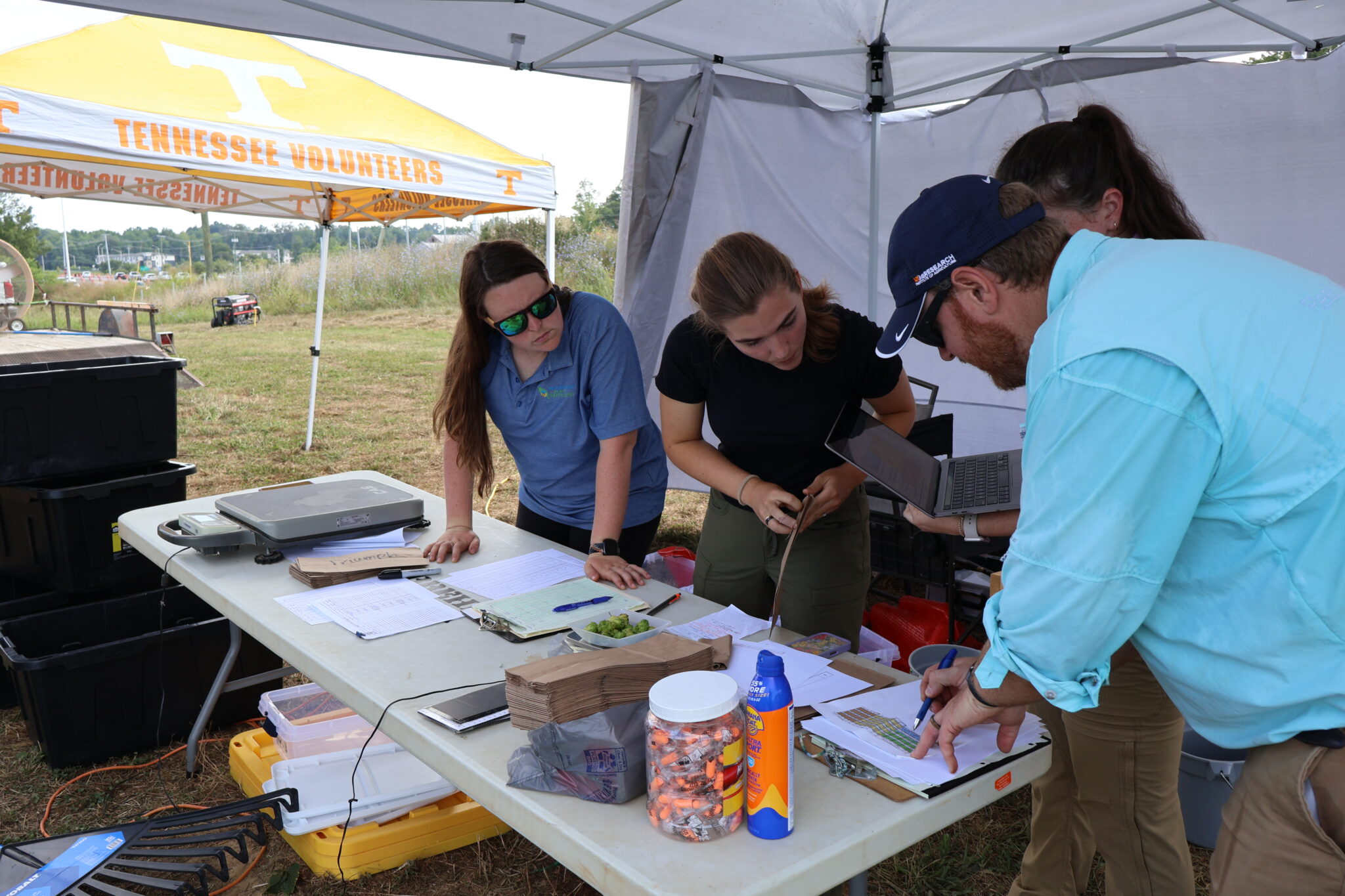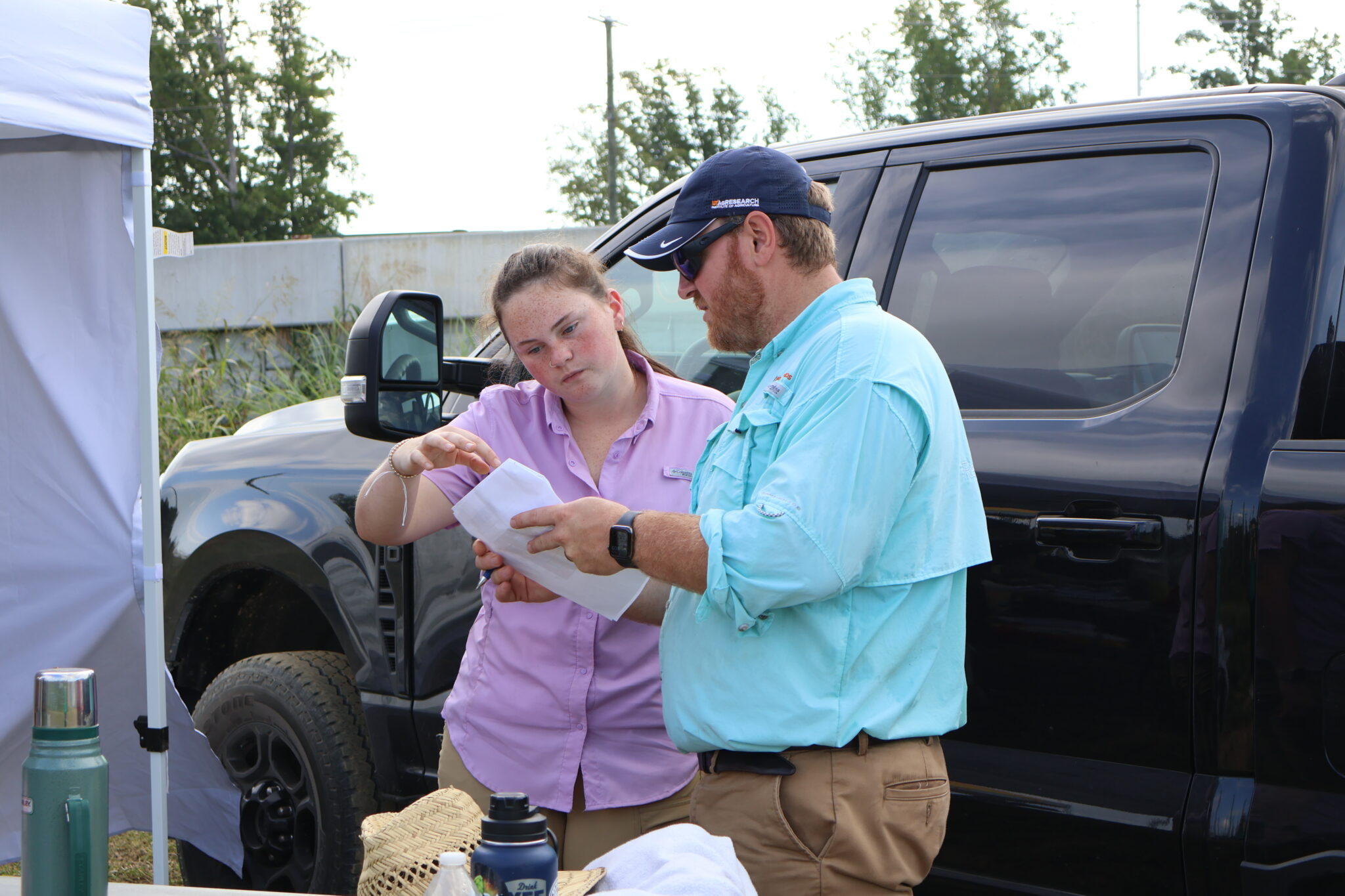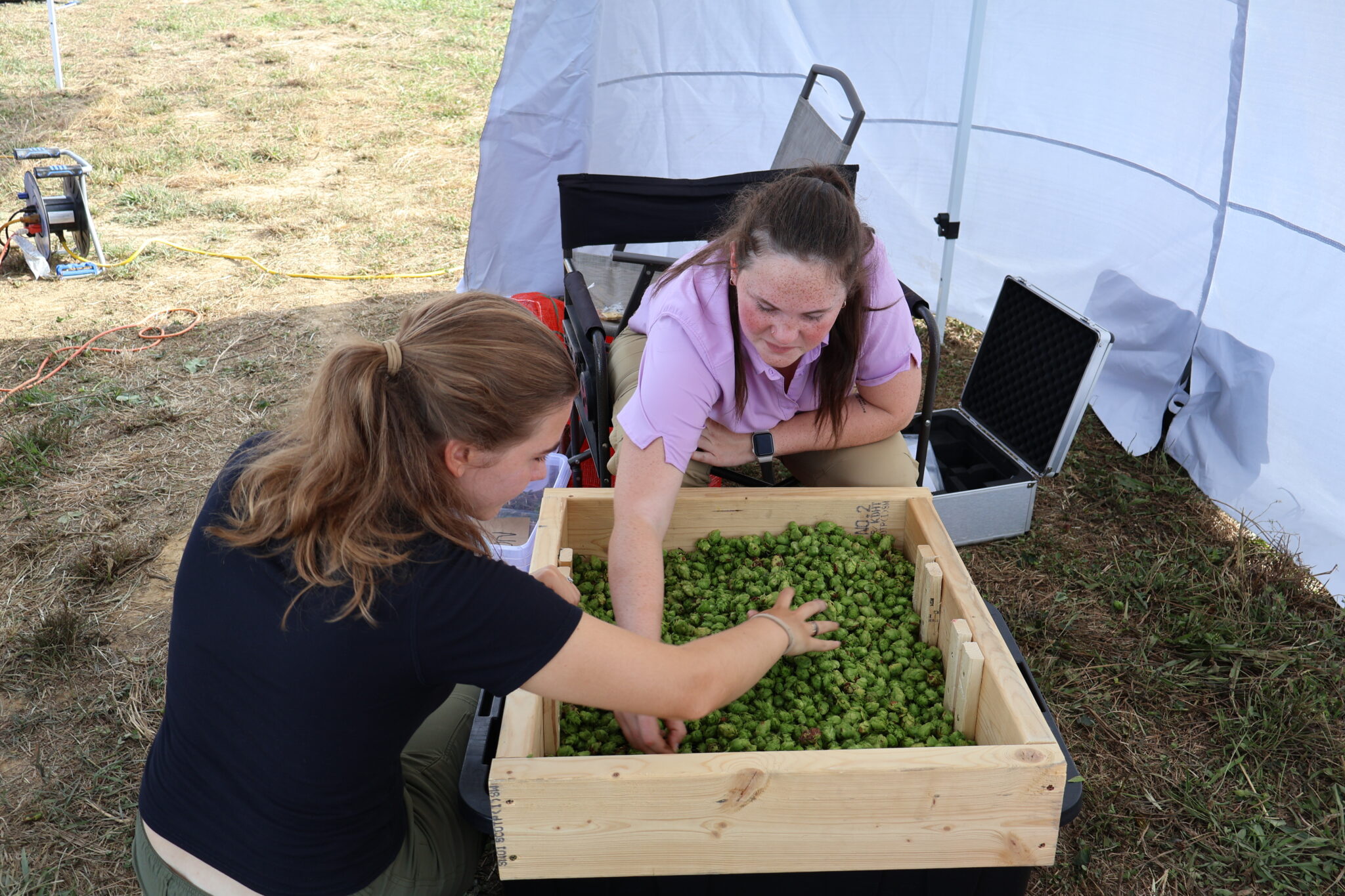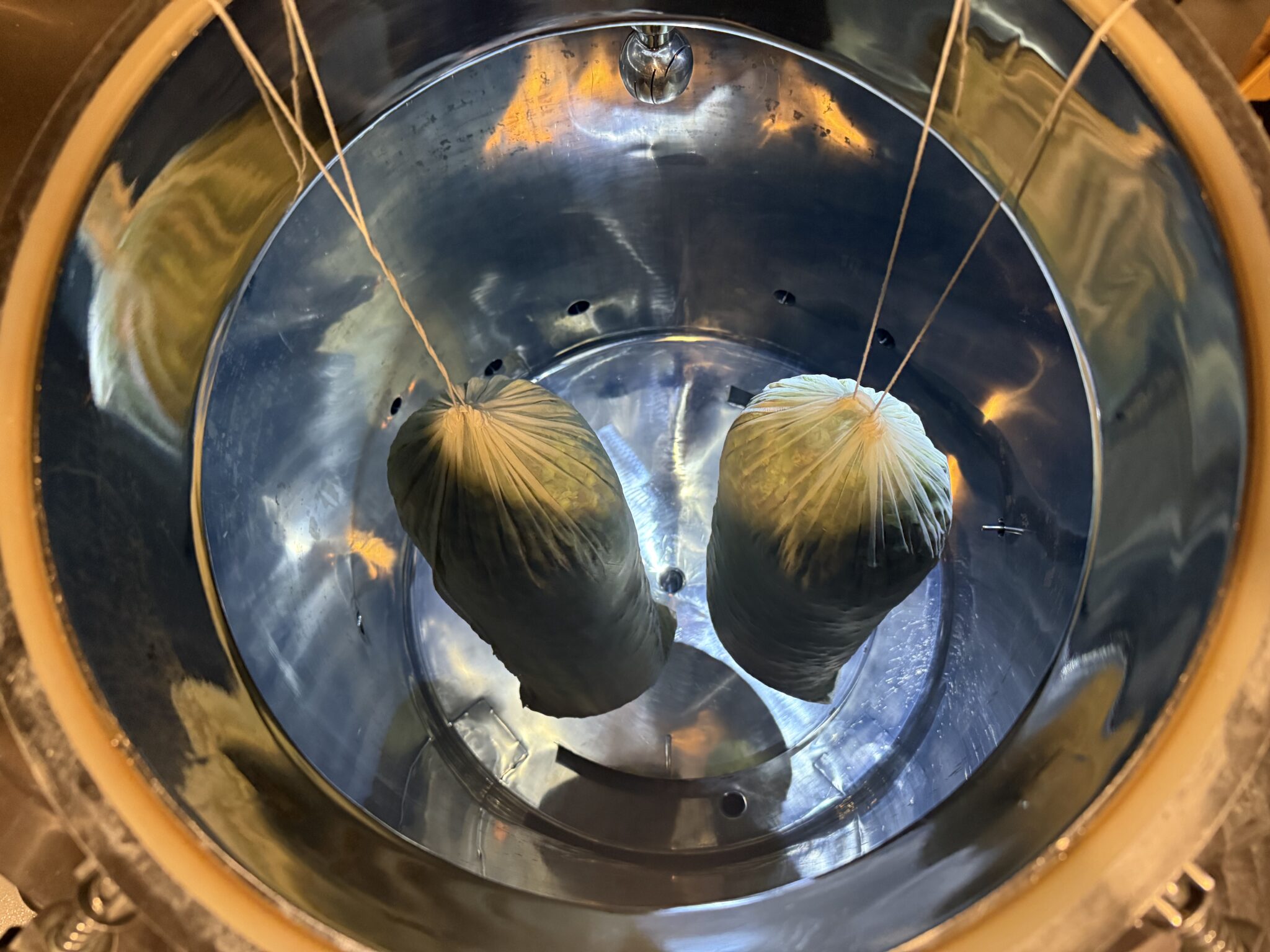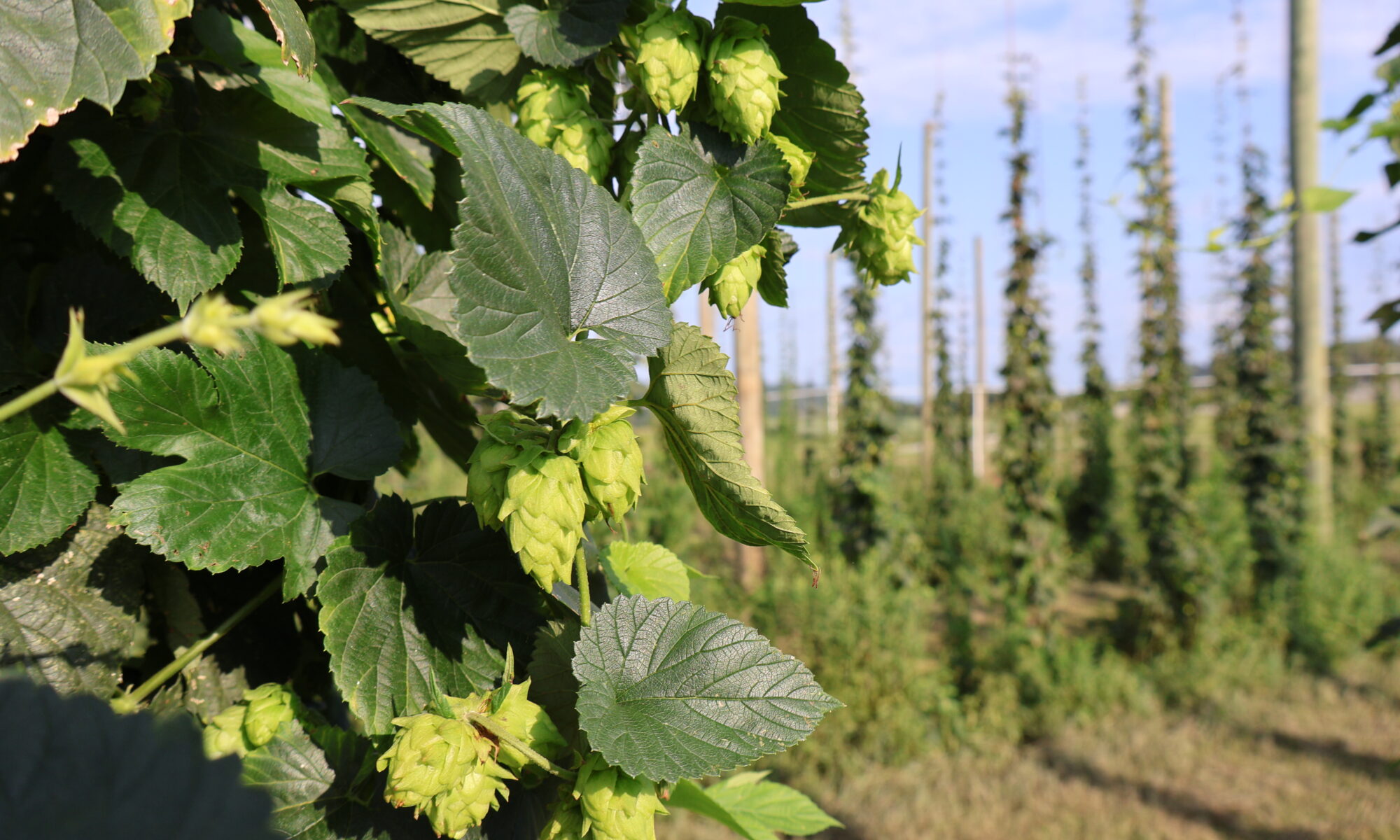
This month undergraduate and graduate students, as well as faculty led by Dr. Mitchell Richmond of the Department of Plant Sciences, spent their days harvesting hops from the UT Hopyard.
The UT Hopyard opened in June of 2023 and each year since has been an active hopyard, producing hops that have been used by multiple local breweries, including Yee-Haw Brewing Co.
Just like the growing process, the process to harvest hops has multiple steps. Hops grow vertically on coconut coir, so harvesting requires taking the hops off the coir and putting them into a machine harvester, which is much better than picking the cones off manually.
First, the hop bine must be cut at the bottom, about a foot or so from the ground. Undergraduate student Sam Jones who is majoring in Plant Sciences with a concentration in organic production, assists with this step.
After the hops have been cut at the bottom, they are cut from the top, causing the hop bine to fall to the ground. The hops are then transported to an area where they can be spread out on the ground to prepare for placement in the harvester. Undergraduate student Linus Parrish, from the School of Natural Resources, assists with this part of the process.
Once the hops are moved, they can be fed into the harvester which separates the cones (the part of the hops that breweries need) from the bine and other leaves and debris.
Finally, the hops get analyzed and weighed by a group of undergraduate and graduate students including Sarah Graham, Rachel Hefton, Nora Mooney, and Kate Turner. When the research side is complete, the hops can be packaged and given to breweries, like Yee-Haw Brewing Co. for use within the next 24 hours.
So just how many cones are needed for a beer? Matt Metz, the Director of Operations at Yee-Haw Brewing Co. says that 20-30 pounds of hop cones produce approximately 10 barrels of a lightly hopped beer.
This year Yee-Haw Brewing Co. added the hops to the brewing process within a few hours of harvesting, creating what is known as a wet-hopped beer. Consumers will be able to get a taste of the beer made with the hops grown in the hopyard at the Yee-Haw location in Knoxville.
The UT Hopyard continues to serve as an important area for hops research in the state of Tennessee. Just this year, researchers grew several different hop varieties and monitored the plants for diseases and pests.
Check out some photos from the harvesting below!
To find out more about the Department of Plant Sciences, visit our website here: https://plantsciences.tennessee.edu/
To be featured on the Department of Plant Sciences website, email Victoria Cavaliere at vcavalie@utk.edu.
By Victoria Cavaliere
